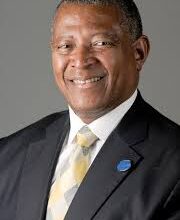Final bond project begins
Published 7:29 pm Saturday, August 23, 2014
It’s been five years, but the City of Selma is nearly done with all of its 2009 bond issue projects.
Selma voters approved the $12 million bond with 80 percent of the total vote. The bond issue included a bevy of projects. Some were completed within months of the bond issue’s passage while others are still ongoing.
Aside from the Riverfront Amphitheater, Selma Mayor George Evans said completing the installation of fiber-optic cable would be one of the last remaining projects on the city’s bond issue list.
“It’s still a work in progress in terms of completion,” Evans said. “It’s certainly going to change the quality of life as well as the quality of work in Selma.”
The last step for contractors is tunneling beneath railroad tracks owned by Norfolk Southern, Evans said.
He said the project could ideally be finished in September, depending on when Norfolk Southern officially gives the city permission.
Once complete the city would own the fiber optic lines, but continue to pay for service through Pine Belt, Evans said.
Previous discussion about the project focused on the fact that wireless Internet would be available in public buildings.
Information technology director Bessie Curtis said that the project would only involve hooking up all city-owned buildings to the same Internet line. The city would not provide open wi-fi or become an Internet provider, Curtis said.
“If that’s something the city decides to pursue in the nest few months, we would have to look at the cost factor,” she said.
Purchasing additional equipment would only be part of the cost to provide wi-fi, Curtis said the city would have to increase its total bandwidth.
A larger bandwidth allows an increased amount of people to browse the Internet at the same time.
Though, for now, Curtis said the connection would provide a steady source of reliable Internet
“It would affect how the city does its day to day business,” she said.
She said it would be especially helpful for the cemetery and public works departments who previously didn’t have Internet access.
Speeds on fiber can reach one gigabit per second, which is dozens of times faster than traditional Internet. The city’s Internet speeds will not start out at peak capacity.
Because fiber-optic cable is durable, Curtis said the cables wouldn’t have to be replaced for up to 50 years.
Evans said he would eventually like to look at the potential cost of investing in wi-fi, especially because he and other city officials have been asked about the lack of Internet access in the public buildings during events.
A total of $700,000 was budgeted for the city’s fiber optic network in the bond issue, according to Evans and Curtis. City finance documents dated May 12, 2014 show $300,000 left. Evans said the amount may seem large, but it’s due to contracts that haven’t been paid yet.





